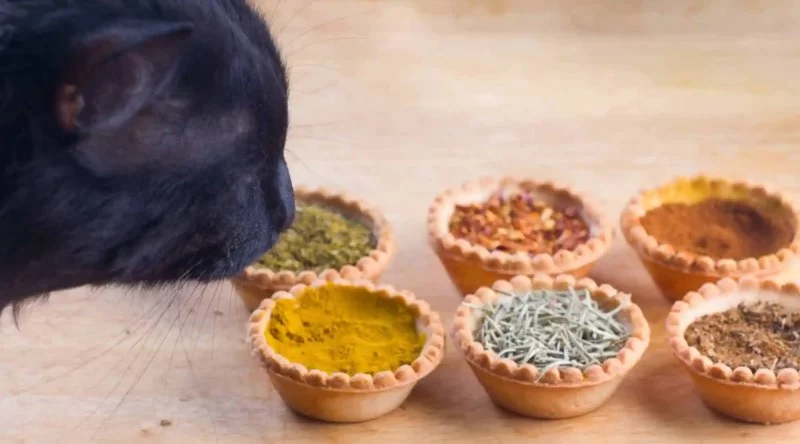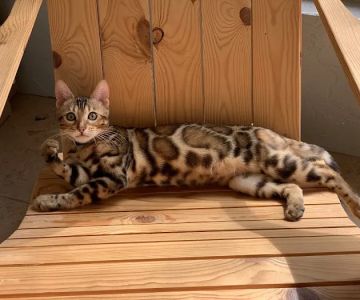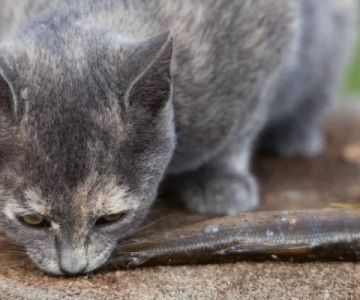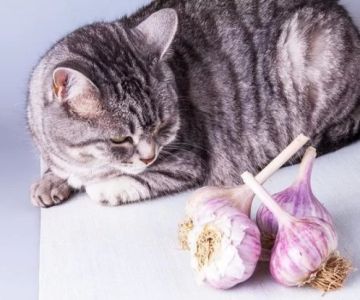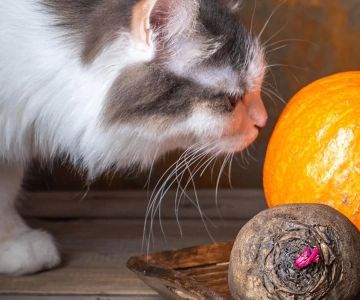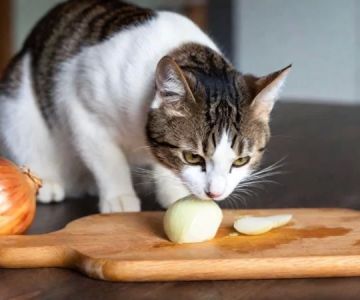- 1 - #understanding-the-role-of-spices-in-cat-diets - Understanding the Role of Spices in Cat Diets
- 2 - #safe-spices-for-cats - Safe Spices for Cats
- 3 - #spices-to-avoid-for-cats - Spices to Avoid for Cats
- 4 - #how-spices-can-benefit-your-cat - How Spices Can Benefit Your Cat
- 5 - #consulting-a-veterinarian-about-spices-for-cats - Consulting a Veterinarian About Spices for Cats
1. Understanding the Role of Spices in Cat Diets
As pet owners, we love to share our food with our furry friends, but it's important to know what’s safe for them to consume. You might wonder, can cats eat spices? While cats are obligate carnivores and their primary nutrition comes from meat, some spices can be incorporated into their diet in moderation. However, it’s crucial to understand which spices are safe and how they may affect your cat’s health.
Spices can be an interesting way to add flavor to your cat’s food or provide certain health benefits. But, unlike humans, cats’ digestive systems are not designed to handle the same variety of foods, especially those that are overly rich in spice. Let’s dive into the spices that can be safe for cats and the ones that should be avoided.
2. Safe Spices for Cats
2.1 Cinnamon
Cinnamon is often a favorite spice in many homes, and while it’s safe for cats in small amounts, it should be used cautiously. The most important factor to consider is quantity. A sprinkle on their food is generally fine, but consuming large amounts can cause digestive upset or even liver toxicity over time. Always be sure to offer only a small pinch of cinnamon to your cat.
2.2 Turmeric
Turmeric has become popular for its anti-inflammatory properties in both humans and pets. A small amount of turmeric can be beneficial for your cat, especially in promoting joint health. However, like cinnamon, it should only be used in moderation. Some cats may also find turmeric’s flavor unappealing, so it’s important to see how your cat responds before introducing it regularly into their diet.
2.3 Ginger
Ginger is another spice that can be safe for cats when offered in small amounts. It can help with nausea and upset stomach, which can be helpful if your cat is experiencing digestive issues. However, too much ginger can lead to stomach irritation. It’s best to offer a small amount, and only when your cat seems to need it, such as when they’re dealing with mild digestive discomfort.
2.4 Catnip and Valerian Root
Though not technically spices, catnip and valerian root are both plant-based ingredients that many cats enjoy. These can be used as a natural way to spice up your cat’s environment and encourage playful behavior. They are safe in small doses and can even offer some behavioral and health benefits, such as stress relief and excitement.
3. Spices to Avoid for Cats
3.1 Garlic and Onion
One of the most critical spices to avoid when it comes to cats is garlic and onion, whether raw, cooked, or powdered. Both garlic and onion contain compounds that can be toxic to cats, leading to symptoms like vomiting, diarrhea, lethargy, and in extreme cases, organ damage. Even small amounts of these spices should be avoided at all costs.
3.2 Nutmeg
Nutmeg, often used in baking and cooking, is another spice that can be harmful to cats. It contains myristicin, a compound that can cause seizures and other serious health problems if ingested by cats. It’s crucial to keep nutmeg away from any food you offer your pet.
3.3 Chili Powder and Hot Spices
Spicy foods, including chili powder, cayenne pepper, and other hot spices, should be kept away from your cat’s diet. Cats’ digestive systems are not built to handle spicy foods, and they can cause severe irritation to their gastrointestinal tract. In some cases, ingestion of spicy foods may even lead to nausea, vomiting, and excessive salivation.
4. How Spices Can Benefit Your Cat
4.1 Anti-inflammatory Benefits
Spices like turmeric and ginger can offer anti-inflammatory benefits for cats, especially those suffering from arthritis or joint pain. These natural ingredients can help reduce swelling and improve mobility, providing your cat with some comfort during their golden years. However, always consult with your vet before introducing these spices to ensure the appropriate dosage for your cat’s size and health condition.
4.2 Digestive Aid
Ginger is a popular spice used for its digestive benefits. It can help soothe an upset stomach and promote healthy digestion. If your cat is experiencing mild digestive issues, a small amount of ginger may provide relief and help restore balance to their digestive system.
4.3 Stress Relief
Catnip and valerian root are both known for their calming effects on cats. When your cat is feeling stressed or anxious, these spices can help them relax and reduce stress. Using catnip or valerian root occasionally can provide your cat with a fun and relaxing experience, enhancing their mental well-being.
5. Consulting a Veterinarian About Spices for Cats
Before introducing any spices into your cat’s diet, it’s essential to consult with your veterinarian. Every cat is different, and what works for one might not work for another. Your vet can provide tailored advice based on your cat’s health needs, ensuring that the spices you offer are beneficial and safe. If you’re considering adding spices like turmeric or ginger for medicinal purposes, your vet can guide you on appropriate quantities and usage.
If you’re looking for more information or guidance on cat nutrition and safe additions to your pet’s diet, Hidden Brook Veterinary offers expert advice and resources for ensuring your cat’s health and happiness. Visit us today for more tips and products tailored to your feline’s needs!

